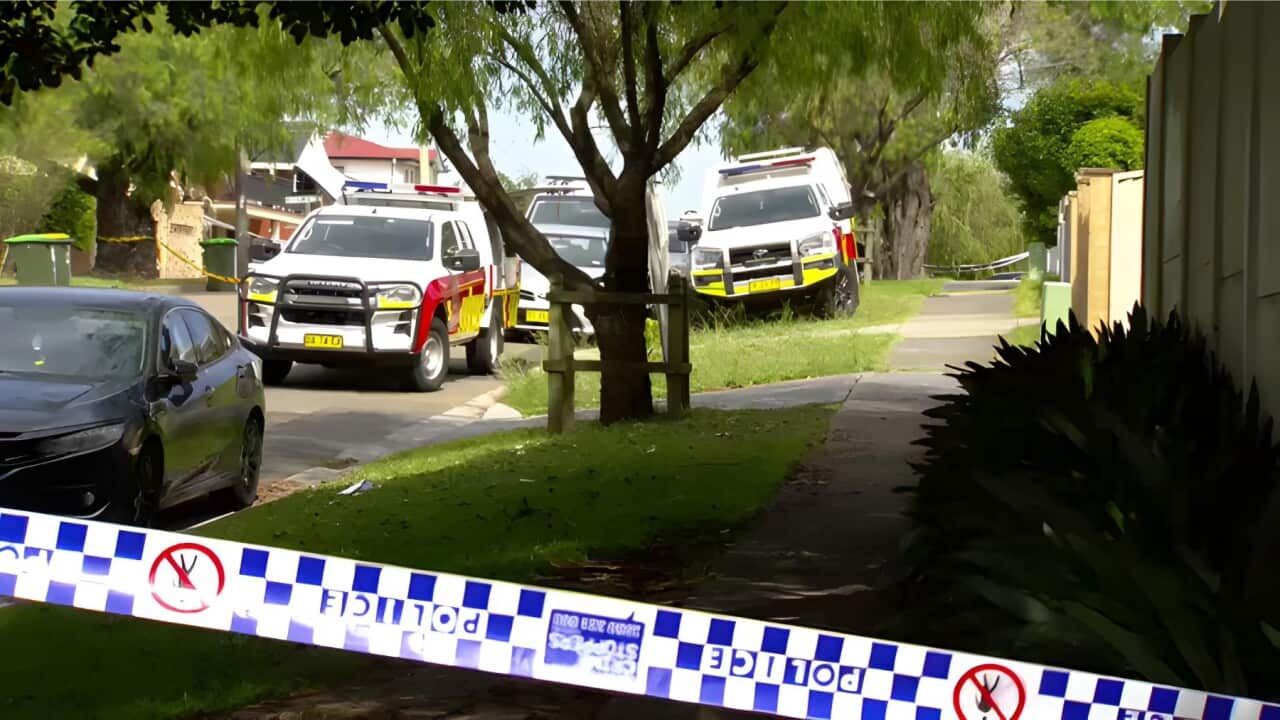TRANSCRIPT
Australian Federal Police Commissioner Reece Kershaw has briefed the nation's political leaders on efforts to stamp out antisemitism at a meeting of National Cabinet on Tuesday afternoon.
The federal government has now released more information on what is being done to investigate and prosecute people accused of antisemitic acts including arson and property damage.
In New South Wales, police have charged 36 people with offences relating to antisemitism, including deliberate damage to buildings and vehicles in Woollahra, and suspicious fires in Bondi.
In Victoria, 70 arrests have been made.
The meeting of National Cabinet comes after a fresh arson attack on a daycare centre in Sydney on Monday night.
On Tuesday morning, NSW Premier Chris Minns held a joint press conference with the Prime Minister.
“It is completely disgusting, and these bastards will be round up by New South Wales Police. In the last few weeks, as a result of Operation Pearl and Operation Shelter, New South Wales Police have put major resources into catching, arresting, and then prosecuting people who are responsible for these hate crimes.”
This latest incident follows the establishment of an AFP taskforce called Special Operation Avalite, which was created in the wake of an arson attack on Melbourne's Adass Israel Synagogue in December.
With 15 investigations ongoing, Mr Albanese now says that taskforce has made one arrest.
“As the premier has said, already people have been rounded up and caught and are being prosecuted, denied bail, and indeed federally as well, under Operation Avalite, which is responsible for coordinating the action between the Commonwealth and the State Police police jurisdictions, the first arrest occurred last Thursday. That's a good thing.”
New South Wales and Victoria have also established their own strike force operations, and the federal government has announced that it will work with states and territories to create a national database to track antisemitic crime and behaviours.
This comes in addition to a raft of changes in recent months, including the appointment of a Special Envoy to Combat Antisemitism, laws to criminalise doxing and the Nazi salute, and the introduction of a bill to criminalise hate speech.
A parliamentary inquiry into Antisemitism on University Campuses is also underway, and more than $50 million dollars has been committed towards safety and security measures at synagogues and Jewish schools.
In January last year, a ban on the Nazi salute came into force.
Late last week, the Commonwealth also launched a new counter terrorism strategy that has been jointly agreed with the states and territories.
It includes $106 million in federal funding over four years to invest in initiatives aimed at countering violent extremism, or CVE.
The government says the strategy will strengthen support services for people at risk of radicalisation, and deepen relationships and collaboration between industry, government agencies, academia and international partners.
Counter-terrorism expert at the Australian National University, Dr Levi West says these initiatives form part of a broader framework for addressing terrorism.
“In terms of what's in that document, it is very CVE centric, so it focuses more on early prevention and rehabilitation than it does necessarily on what would be referred to as 'hard' counter terrorism, so it's the work of intelligence services and law enforcement agencies, and is much more orientated to towards interventions that tend to involve psychologists, social workers, and those types of things.”
As a complement to these initiatives, intelligence and law enforcement agencies have also been given greater powers in a number of cases, where they're being investigated as possible terror attacks.
Dr West explains.
“By investigating it as a terrorist incident, you, generally speaking, will then have the powers of what's called a Joint Counter Terrorism Team. And a Joint Counter Terrorism Team is a multi-agency team that exists, there's one, certainly in most capital cities in Australia, that consists of state police, Federal Police, the Australian Security Intelligence organization, or ASIO, from an intelligence perspective, and the Crime Commission. And between those four agencies, what you then get is a whole series of additional capabilities and authorities and powers that come when you're trying to investigate a terrorist attack that distinguishes it from a conventional criminal offence”
Not all of the recent incidences of antisemitism are being investigated as terrorist offences, but for those that are, including the arson attack on Adass Israel Synagogue, authorities gain greater access to intelligence capabilities and additional powers to detain and question suspects for longer.
Despite the efforts to stamp out antisemitism, Opposition Leader Peter Dutton says Australia's counter terrorism laws are not strong enough.
“The fact is that people of Jewish faith in our country are living in fear at the moment, and for the last 15 months, Australians, more generally, but particularly people of Jewish faith, have begged their Prime Minister to provide leadership to provide the deterrence to those who would seek to conduct themselves illegally and in a racist way in our country. I wrote to the prime minister in November of '23 asking for a national cabinet to be convened because we could foresee what was going to happen.”
Speaking on Sunday at the Central Synagogue in Bondi Junction, Mr Dutton donned a Jewish kippah as he outlined a new policy from the Coalition.
This includes mandatory minimum sentences of six years for all acts of terrorism as defined under Commonwealth law, and a new offence for threatening places of worship, punishable by between five and seven years jail.
The Coalition would also introduce a 12-month minimum mandatory prison sentence for the display of prohibited symbols - such as the Nazi solute or Hezbollah's flag.
Shadow Home Affairs Minister James Paterson says mandatory minimum sentencing will be effective.
“It's very clear that we need strong action to deter the perpetrators behind this behaviour, because until they fear the consequences of their behaviour, this crisis is going to continue to get worse.”
A spokesman for the Australian Lawyers Alliance, Greg Barns SC, disagrees.
“Our view is that like all mandatory sentencing proposals, it's counterproductive, and it's a case of politics over policy. Mandatory sentencing does not work anywhere in any circumstances.”
Instead, Mr Barns says mandatory sentencing hinders the court's ability to deliver justice and diverts attention from the deeper drivers of crime.
“The problem with mandatory sentencing is that it means that you don't focus on prevention. It means you don't focus on what are the root causes of offending, whether it be for terrorism or for burglaries, it doesn't matter what it is, and you know, as I keep saying, this will have zero deterrent effect, I mean, and what's worse is the intellectual dishonesty of politicians because they know people have zero impact and yet they continue to trot out mandatory sentencing.”
Counter terrorism expert Dr Levi West says he's not aware of any research that shows mandatory minimum sentencing deters terrorism.
“My first response is to want to be interested to see what the basis upon which this policy position was come to. Was there a body of work commissioned to determine what the best timeframe was, what the best sentence length was for this mandatory minimum sentencing? Was there research done to assess whether or not mandatory minimum sentencing has any impact at all on someone's willingness to potentially engage in a terrorist attack? If that's the case, if all of that is true and there is evidence to support it, then have at it, right? It's not for me to sort of claim that it does or doesn't make a difference, because I don't research it, but I'd be very interested to see the research that informs the position.”
As the response to antisemitism becomes increasingly urgent, political leaders of all persuasions will continue to grapple with how to keep the community safe.
Dr West says promoting awareness and education will be one of the keys - and the tone of discussion must be set from the top.
“I don't have a great deal of hope that we'll get through the election campaign without this being a significant factor, and in some ways it ought to be. But the question to me is more about how politicians go about discussing something like this than whether or not they should or they shouldn't. It warrants being an election issue at this point. You know, we have a genuine and significant antisemitism problem in Australia now, but that's something that needs to be discussed in very calm and very sensible and very non accusatory kinds of ways less that make things worse.”













